‘Making History Again,’ And The Path Forward For Spaceport Camden
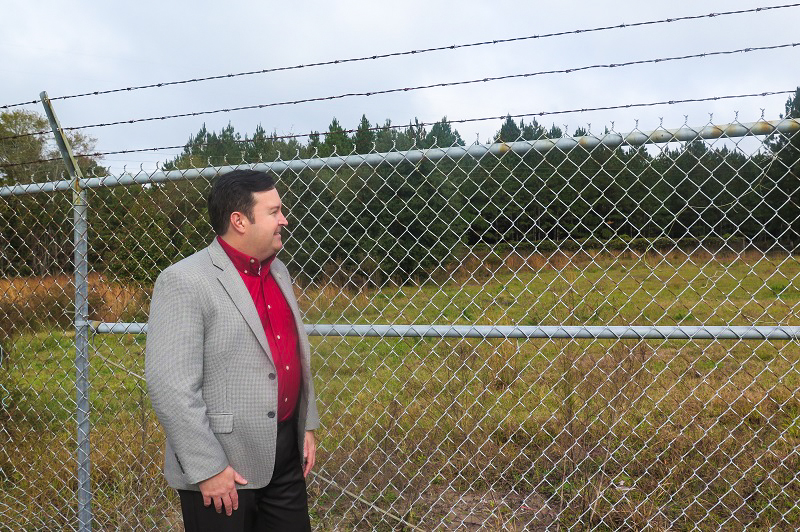
Steve Howard is Camden County’s administrator and the most public proponent of the project. He often references Camden’s past involvement with the space industry. (Molly Samuel/WABE)
This piece is a part of WABE’s deep dive into Camden County’s proposed spaceport project: how it came to be, who could be affected and where it could go from here. Read part two of this special report here.
If you’ve seen any Spaceport Camden marketing materials, you might have noticed the phrase “Making history again.”
It’s something Camden Administrator Steve Howard brings up regularly: Camden’s past involvement with the space industry.
“What I tell everybody is the world’s largest thrust rocket engine wasn’t test fired in California, in Florida, in Virginia. It was in Camden County, Georgia, USA,” he explained.
“So there was a space connection with Camden County in the ‘60s. We made history, and we have an opportunity to make history yet again.”
That was 1965, when NASA contractor Thiokol tested the world’s most powerful solid fuel rocket motor at the very proposed spaceport site. (Thiokol later sold the site to Union Carbide.)
But that rocket motor never went to space. NASA chose liquid fuel instead.
So, the Thiokol site in Woodbine, Georgia, shifted to production of things like grenades, tear gas and trip flares for the Vietnam War. And it was then, in 1971, that the site saw a horrific, deadly explosion.
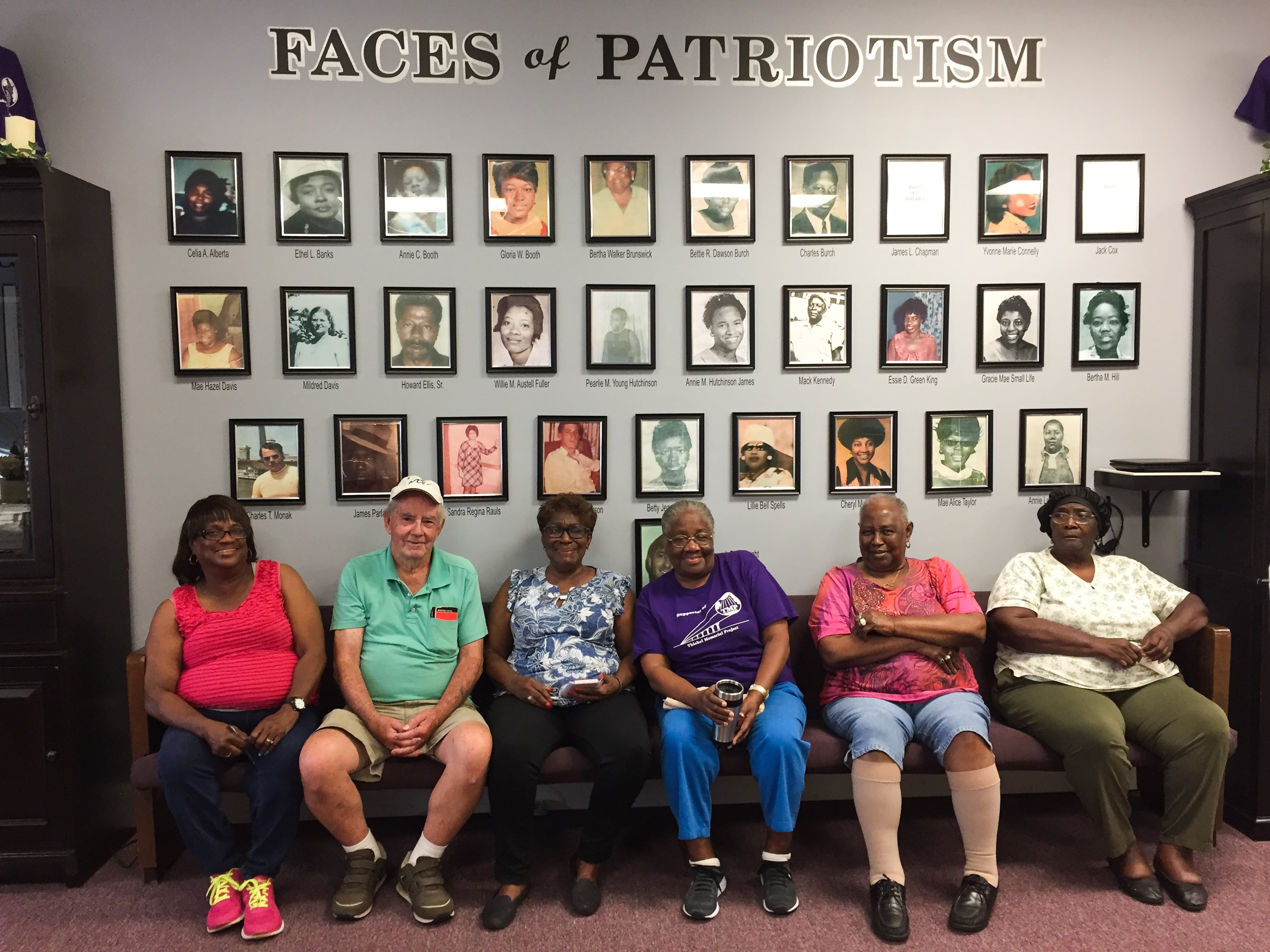
At the time, Carolyn Fairley Waye was one of the hundreds of employees at the plant, assembling trip flares in building M-132.
Everyone had gotten used to daily false fire alarms working with flammable material. But on one February morning, it wasn’t a false alarm. Fairley Waye had just gotten off a break. She thinks a spark may have ignited at her station as she was putting gunpowder into a flare case.
No one had trained the employees on just how dangerous their work was.
The fire moved so fast, she said, some people didn’t even have time to get off their stools. Even the water was on fire.
“And we ran out, and we heard a big, loud explosion. And that’s when we heard the screaming, and we looked and bodies were hanging in trees,” she said.
And we ran across the marsh. Fire was on both sides out front and out back. We couldn’t go nowhere.”
Fairley Waye made it out with just a back injury. Twenty-nine people died and at least 50 others were injured in the accident.
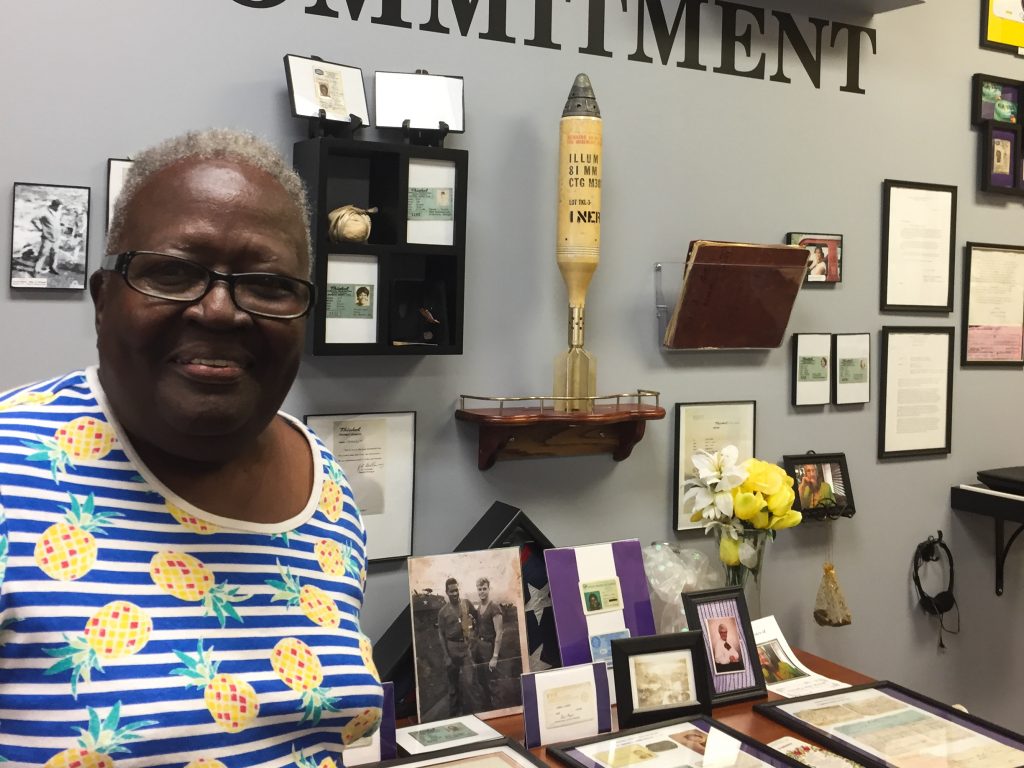
She hopes a spaceport would help the local economy, but she said it’s frustrating how little the Thiokol explosion story comes up in Camden County and American history.
“It has been 48 years since this explosion blew up and killed so many people,” she said. “You never hear about it. It’s just like it was … something you sweep under the rug.”
Jannie Everette’s mom survived the explosion, too. And Everette also gets frustrated when the history is forgotten.
Particularly when part of the Thiokol history site gets referenced, like the 1965 rocket motor test.
“The whole thing is if you want to use one part of the history, let’s use it all,” she said.
In fact, she started a memorial museum and nonprofit in the Thiokol workers’ honor once she realized how little their story is documented.
Specifically, she saw a Camden County history book, 559 pages long, with just a few lines on the explosion. And no mention of the survivors’ names.
Her group is lobbying the government for a national park in their honor.
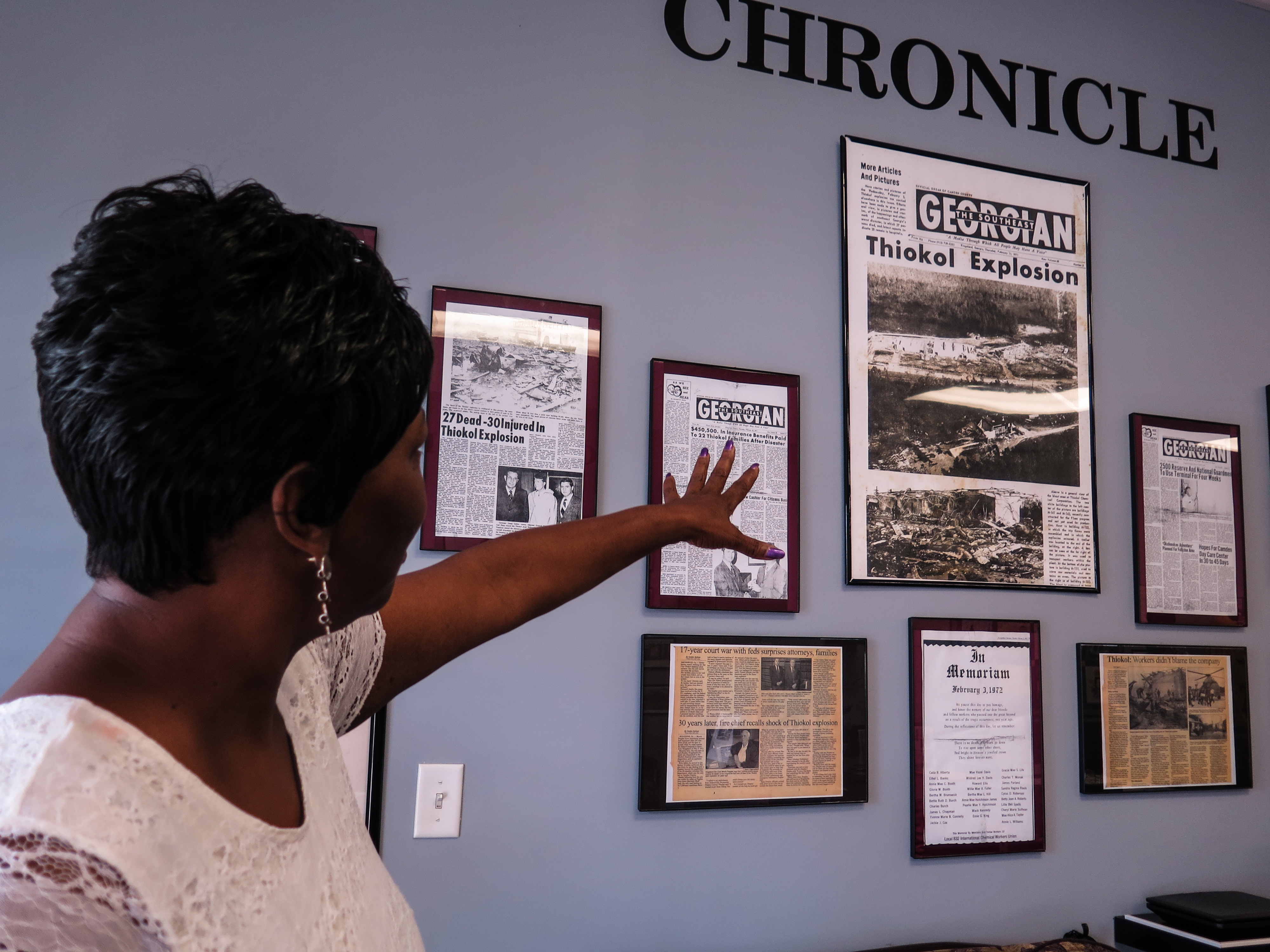
Beyond the history, Everette, who spends lots of time trying to raise funds for her museum, said she’s worried about the county money being spent on the spaceport.
“People are saying jobs, jobs, jobs. How many jobs? Who’s the contractor, right?” she asked. “Just say we invested $20 million and the county puts up this money. Then our children, when we’re gone, is going to be saddled with paying that debt.”
To Regulate And Promote
So, where are things now for the proposed Spaceport Camden?
They lie with the Federal Aviation Administration, which regulates commercial space transportation. The county successfully submitted its application for a launch site operator license, and a decision is due by December.
Until last year, George Nield was associate administrator for commercial space transportation at the FAA, in charge of overseeing and regulating the county’s commercial space activities.
He said first and foremost, the FAA’s job is to make sure rocket launches are safe. Not whether they make financial sense.
But some opponents, like those on Little Cumberland, think the FAA should have already stopped the county from applying. They think the idea of launching so close to them is too risky to consider.
Nield argues the agency can’t reject a complete application before fully vetting it.
The office has a dual mandate: to regulate AND promote.
“So, now some people think that’s a conflict between safety and promotion,” he said. “We do not view it that way at all. Really what we’re talking about is good government trying to be efficient and being helpful.”
He points out the agency’s perfect safety record for commercial space launches. Nield urged opponents to trust the agency’s process to keep them safe.
‘We Have Enough’
But even if this site operator license is approved, that doesn’t mean rockets can launch. Each launch will need separate federal licenses, too.
In short, it could still be a long road for Camden County. And a long road for the spaceport’s opponents.
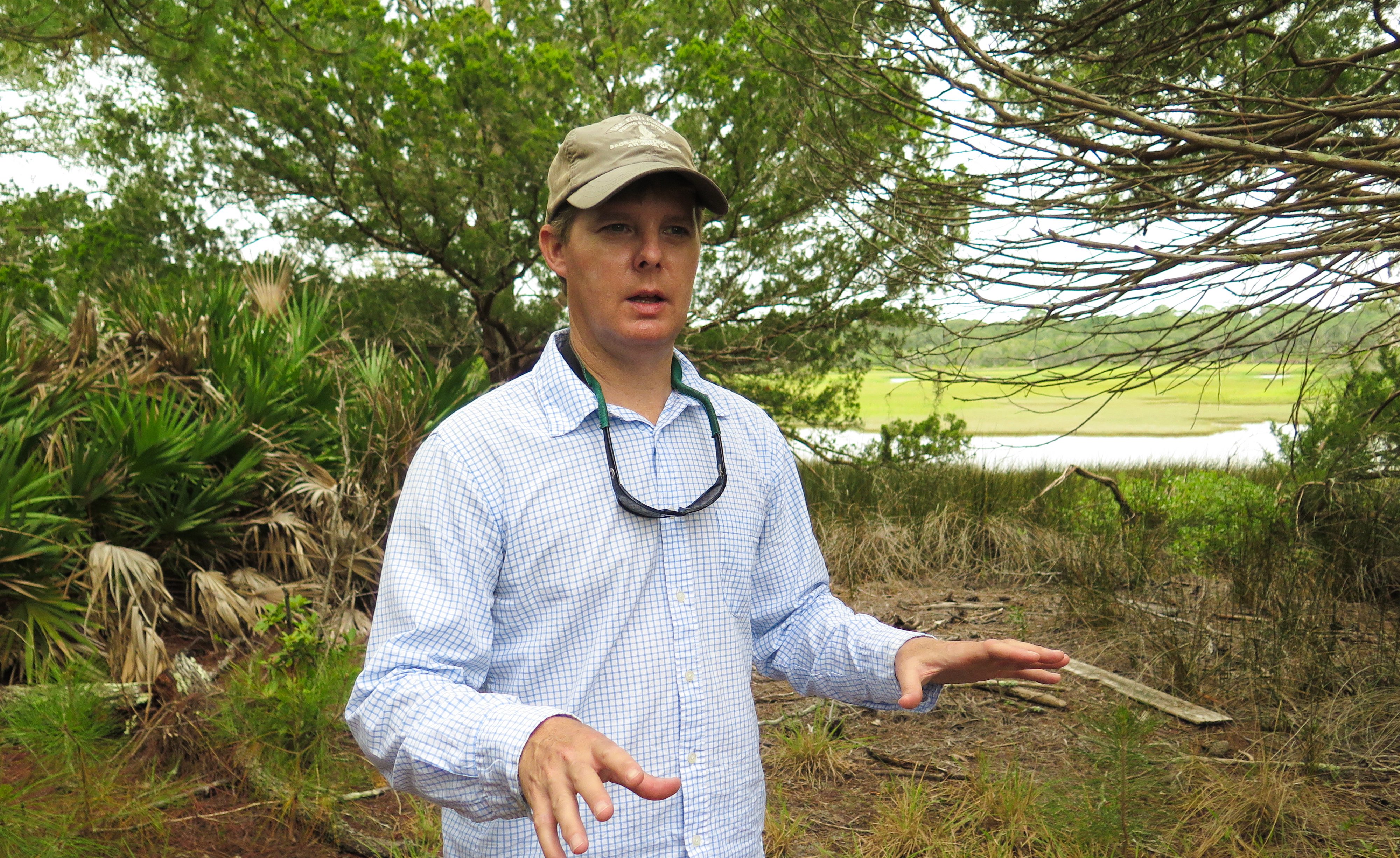
Kevin Lang on Little Cumberland said they’re preparing for possible federal and state legal challenges if a license is granted.
“If it’s necessary, it’s necessary. We’re sure hoping it’s not,” he said.
“We’ve got to be ready to protect the resources. Our view is it’s worth the time, energy and resources to go through the battle.”
That battle could also involve Georgia’s most powerful politicians. Gov. Brian Kemp, Lt. Gov. Geoff Duncan, both of the state’s senators and almost all of Georgia’s members of Congress, both parties, have publicly praised the project.
And the FAA notices that, Nield said.
Which bolsters Camden’s commitment. How far are they willing to go?
Commissioner Gary Blount said there is no cost cap set. For now, they’re good, he said.
“We do not have endless money to work with. No. But we have enough. And we feel like we’re at the point where enough is what will get it done,” he said.
Currently, the county isn’t asking for any state or federal money.
But County Administrator Howard said to make the Camden spaceport dream a reality, they’ll explore “all tools available in Georgia’s portfolio to spur job creation and drive business growth.”








